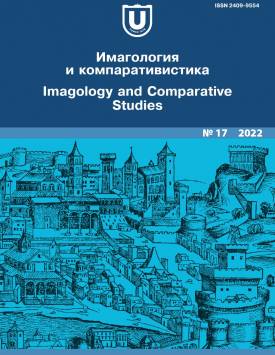Fyodor Dostoevsky’s The Gambler in Hungarian Translations: The Interpretation of the Concept ‘Passion in Love’ (‘Lyubovnaya Strast’)
The article presents the first attempt to study the Hungarian translations of Fyodor Dostoevsky’s The Gambler. The research aims at determining the completeness of the translation of sensemaking elements in the two most popular Hunagarian translations by Endre Szabo (1900) and Erzsebet Guthi Devecserine (1957) to assess the impact of the translation shifts on the preservation of the novel’s idea. The method of studying the original and the translations is based on the concept analysis. Studying the original, the authors have revealed that the concept of passion (composed of such concepts as passion in love, passion for gambling, greed, and pride) is one of the sensemaking elements in the novel. The article focuses on passion in love in three episodes of the introduction which verbalise this concept in the image of Alexey Ivanovich, thus establishing his psychological portrait and describing his attitude to Polina. The worldview in Dostoevsky’s novels is built upon the orthodox values, which define the dominants of the novel axiology. The Hungarian culture is catholic. The contradictions between the Orthodox and Catholic interpretation of passion in general allow hypothesizing that the reproduction of some features of passion in love in translation may be challenging. The analysis of the translations has revealed that the translators rendered some features of the concept practically without loss (appetence, hatred, murder, jealousy, desire, appetite, agony / excruciation, suicide, disease). Theidentified losses (pleasure, extinction of appetence, loss of control) do not distort the sense of the episodes studied as well as the portrait of the character. The authors believe that it was possible to preserve the concept due to a number of factors. Firstly, the translators focused on the similarities rather that differences in the Orthodox and Catholic interpretations of passion. Secondly, the approach of the Hungarian translators is distinguished by an extremely careful attitude to the original: Szabo adheres to the literal reproduction of the original style and Devecserine aspires after the balance between the original and the Hungarian linguistic norm. Contribution of the authors: the authors contributed equally to this article. The authors declare no conflicts of interests.
Keywords
Fyodor Dostoevsky, The Gambler, literary translation, dialogue of cultures, concept, author’s style, ethnopoetics, image of the characterAuthors
| Name | Organization | |
| Shatokhina Anastasiia O. | Tomsk Polytechnic University | shato3012@yandex.ru |
| Banchenko Aleksandra V. | EotvosLorand University | aleksandra.banchenko@btk |
References

Fyodor Dostoevsky’s The Gambler in Hungarian Translations: The Interpretation of the Concept ‘Passion in Love’ (‘Lyubovnaya Strast’) | Imagologiya i komparativistika – Imagology and Comparative Studies. 2022. № 17. DOI: 10.17223/24099554/17/4
